Tell me about what you read and loved in 2022, and especially send me any good novels (I hardly read any). Here are my top 10 from the past year, along with some honorable mentions to consider.
1. The Poetics of Space, Gaston Bachelard
I’ve written about Gaston Bachelard several times in this newsletter, and this is the second time I’ve read this mystical book.
“It is on the plane of the daydream and not on that of facts that childhood remains alive and poetically useful within us. Throughout this permanent childhood, we maintain the poetry of the past. To inhabit oneirically the house we were born in means more than to inhabit it in memory; it means living in this house that is gone, the way we used to dream in it.”
The second time around, I found it even more dreamy and compelling. I felt awash with gratitude for the strange, meandering beauty of this book. Bachelard changed how I think about my home and how I care for it—and thus transform it through that care.
In this enchanting, surprisingly readable text, French philosopher Bachelard discusses the intersection of poetry, imagination, and the built landscape, focusing especially on domestic spheres. Drawing references from nature, dreams, Rilke, Baudelaire, lesser-known French literature, and his own experience, Bachelard fashions his philosophy into a welcoming arena. Nothing is too minor or mundane for him.
Images, after all, are simple; we experience them every second, and no weighty scholarship can improve their reception. Bachelard concerns himself with the intimate details of this transfer: How is it that the imagination processes space and translates it to memory, to art, to awareness?
As he writes, “I am moreover convinced that the human psyche contains nothing that is insignificant.”
2. Black Paper, Teju Cole
It is always a gift to read Teju Cole. He never fails to lift the spirits—even in a book with such a heavy subtitle. This serious, broad-ranging collection includes reflections on international travel, migration, photographers, literature, translation, and culture. Importantly, it also includes his dazzling essay “The Blackness of the Panther,” which alone makes this book worth buying. His writing is always a balm, even when it is as weighty as this.
3. What You Have Heard Is True, Carolyn Forché
“I have no doctrinal allegiances. I’m interested in critique of ideology rather than its promulgation. But we will see,” he said, “as your poet Bertold Brecht suggested, the power of the poor to change the course of history is the world’s one hope.”
A beautifully written account by a young poet, drawn into the absolute darkness and terror of El Salvador. Not for the faint of heart.
4. Essays Two, Lydia Davis
I have always loved Lydia Davis and believed her to be a peerless writer and translator. This volume demonstrates her tirelessness and brilliance in the work of translation and further cemented my abiding affection and admiration for her. I found the essays on Proust and Flaubert most interesting; I’ll admit I skimmed some of them (on Dag Solstad, for example), but in every piece, she sparkles. She is wit and light and brevity.
5. Lost Time, Jozef Czapski
Proof that literature can save your life.
In the case of Józef Czapski and his fellow Polish prisoners of war, surviving a Russian prison camp was accomplished through a series of secretive lectures the prisoners would deliver to one another at night, after back-breaking labor. Some were experts in art and history and architecture. Czapski, an accomplished painter with a prodigious memory, was taken by Proust and delivered this series of lectures, which his fellow soldiers transcribed and pieced together after their two years of imprisonment.
From his moving introduction to this small, incredibly powerful volume:
“The joys of participating in an intellectual undertaking that gave us proof that we were still capable of thinking and reacting to matters of the mind—things then bearing no connection to our present reality—cast a rose-colored light on those hours spent in the former convent’s dining hall, that strangest of schoolrooms, where a world we had feared lost to us forever was revived.
“It was incomprehensible to us why we alone, four hundred officers and soldiers, were saved out of fifteen thousand comrades who disappeared without a trace somewhere beyond the Arctic Circle, within the confines of Siberia. From those gloomy depths, the hours spent with memories of Proust, Delacroix, Degas seemed to me among the happiest of hours.”
6. Nature’s Best Hope, Douglas W. Tallamy
Deeply inspiring and hopeful. A winsome, informative book with the most practical thing we homeowners could do to combat climate change: Start with your backyard.
Tallamy writes with clarity and conviction about the need for this reimagining of our private landscapes, and upon finishing it, I feel even more persuaded to follow my burgeoning passion for native plants.
7. The Secret Lives of Color, Kassia St Clair
I read this while in the thick of paint-color paralysis during our home renovation, and I fell in love with this beautiful little book.
Kassia St. Clair is a talented writer—more talented than she needs to be—and it is a charming, rambling history of color and the human passion for it. The most common thread in the book is how willing we are to literally die for color, as the vast majority of paints and pigments we’ve developed will kill you. I loved learning the names and histories of very specific shades, and I am tempted to buy a copy for future reference.
8. In the Margins, Elena Ferrante
“We have to accept the fact that no word is truly ours. We have to give up the idea that writing miraculously releases a voice of our own, a tonality of our own: in my view that is a lazy way of talking about writing. Writing is, rather, entering an immense cemetery where every tomb is waiting to be profaned. Writing is getting comfortable with everything that has already been written—great literature and commercial literature, if useful, the novel-essay and the screenplay—and in turn becoming, within the limits of one’s own dizzying, crowded individuality, something written. Writing is seizing everything that has already been written and gradually learning to spend that enormous fortune. We mustn’t let ourselves be flattered by those who say: here’s someone who has a tonality of her own. Everything, in writing, has a long history behind it.”
Ferrante on the genius of Ferrante. A tiny book for super-fans like myself.
9. Low Anthropology, David Zahl
In his characteristically persuasive and winsome manner, David Zahl reveals the pitfalls of a high view of yourself—and shows the way toward a life-giving low anthropology, leading to more connection, honesty, and grace in every sphere of life.
10. Draft No. 4, John McPhee
A short study from the matchless John McPhee, a reporter’s reporter, one of the greats of his generation. The book reads less like a structured writing class and more like a series of recollections from his career, which, when pieced together, form a compendium of wise advice. As a former copy editor, I found myself touched by how much of the book is not about McPhee but about all of the people who helped make his pieces great—his managing editors, publishers, fact-checkers, and copy editors. Writers of my age, I think, would do well to look to McPhee and emulate him as best we can. There are very few like him these days.
Honorable Mentions
Either/Or, Soren Kierkegaard
Liberation Day: Stories, George Saunders
Foreverland, Heather Havrilesky
How to Live, Sarah Bakewell
This Is Your Mind on Plants, Michael Pollan
Vladimir, Julia May Jonas
Gathering Moss, Robin Wall Kimmerer
Planting: A New Perspective, Piet Oudolf
These Precious Days, Ann Patchett
Minimalista, Shira Gill
Nancy Lancaster, Robert Becker
Avalon, Nell Zink
The Road to Serfdom, F.A. Hayek
Working, Studs Terkel
The Botany of Desire, Michael Pollan
Saving the Wild South, Georgeann Eubanks
The Boy Who Was Raised as a Dog, Bruce Perry
The Road to Lichfield, Penelope Lively
How to Keep House While Drowning, KC Davis
Infused, Henrietta Lovell
Harrow, Joy Williams




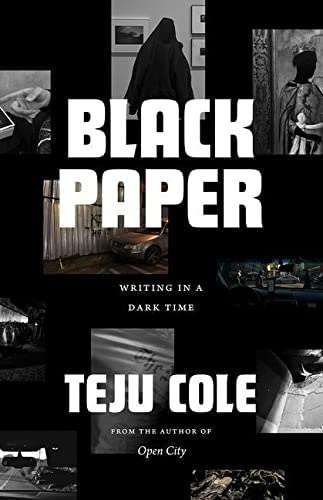
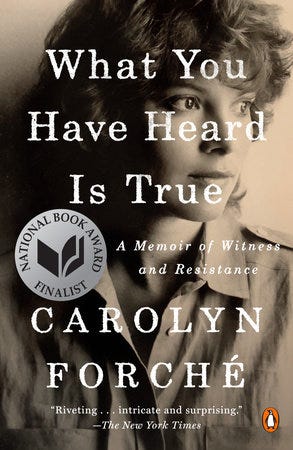


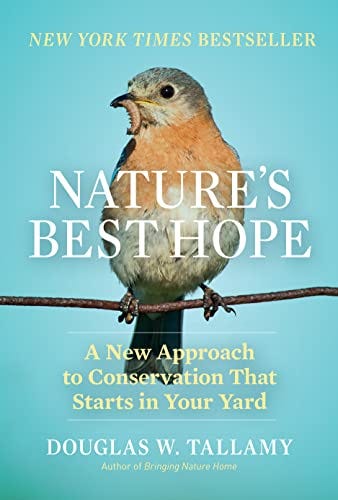
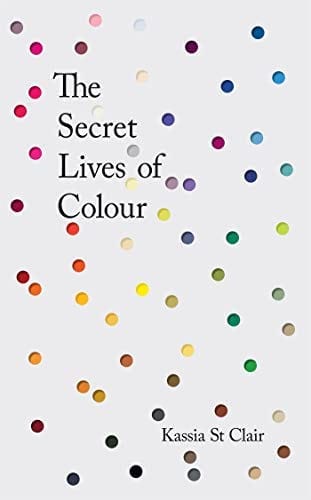

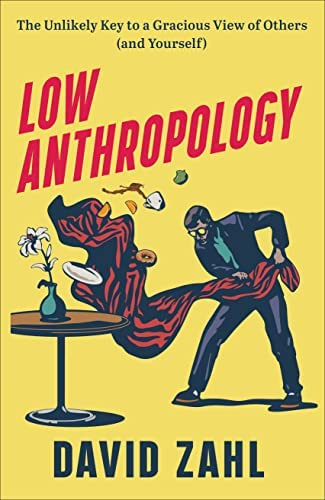
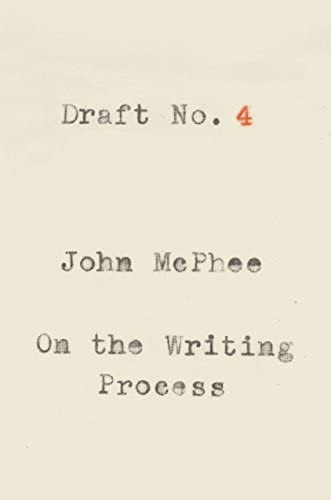
Definitely added some of these to my TBR. My favorite read in 2022 was At Home in Mitford by Jan Karon. Honorable mentions include Girl Meets God by Lauren Winner, I Just Don't Wait Anymore by Grace Thornton, Table in the Wilderness by Preston Yancey, and I Guess I Haven't Learned that Yet by Shauna Niequist.
Random reader from your blog's Wordpress days (honestly cannot remember how I stumbled across it) - but since you asked, my list of favorite reads for 2022 is here: https://tcairns.com/some-favorites-from-my-year-in-books-2022/
"What You Have Heard Is True" was my favorite read in 2021, so hopefully something on my current list sparks interest.